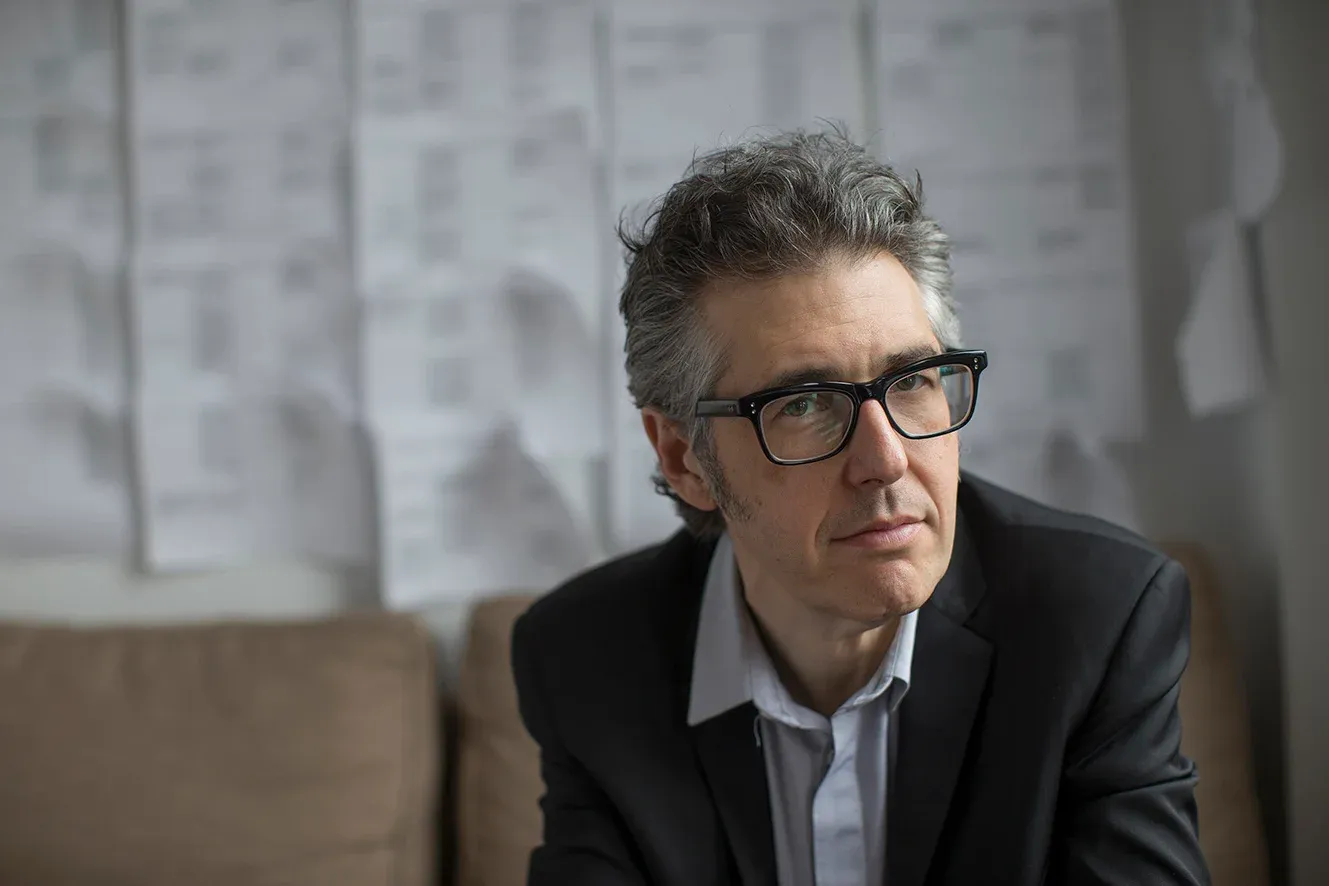GOSHEN — When Ira Glass postponed his March 19 visit to Goshen College, the news was a relief for die-hard Indiana basketball fans.
The same night that Glass, public radio star and host of NPR’s “This American Life,” was going to spend an evening in Goshen, Indiana University was set to take on rival University of Kentucky for a spot in the Sweet 16 in the 2016 NCAA tournament. Some in Goshen mused that Glass must be an IU or Kentucky basketball fan and he postponed the show so he could watch the big game live.
Glass shot down that theory with a laugh during a recent telephone interview with The Elkhart Truth.
The real reason he couldn’t make it in March? He was jetting off to Europe to try to meet up with a group on the run from the Islamic State group — a much more noble excuse than March Madness. Glass has since returned from Europe — the IS segment has not made it to a public broadcast yet — and will be speaking at Goshen College on Saturday evening. (A few tickets remain; visit goshen.edu/tickets if you’re interested.)
During the event, called “Reinventing Radio: An Evening with Ira Glass,” Glass will talk about “This American Life” and how the show is made. He will recreate the sound of the show using his iPad on stage, mixing stories and his narration with pretaped quotes and music.
“This American Life” is a weekly public radio show broadcast on more than 500 stations across the country. Each one-hour episode has a theme, and there are generally three or four stories or “acts” that fit that theme. The show combines documentary storytelling with other types of entertainment, like monologues or comedy routines.
The best way to understand what the show is about is to give it a listen, Glass said.
Glass chatted with The Elkhart Truth ahead of his first visit to Goshen. Here is a bit of what he had to say.
What is the most challenging part of making a show?
Glass: It’s hard finding stories and it’s hard making stories as sparkly as they can be. The mundane work can be hard, the planning of when stories can be finished, when stories can get on the air. Stories don’t want to be finished exactly when you want them to be finished. Finding an idea to make a story about is a job. It isn’t like stories are sprinkled on you like fairy dust.
What makes a good story? How do you take a raw interview and turn it into a segment that sparkles?
Glass: It depends on the story. Obviously, the plot has to be good and drive at some thought in the world. We’re looking for scenes with funny moments and emotional nights. It has to be interesting and surprising. Weirdly, a lot of the editing comes down to noticing when you’re bored and noticing when you feel excited. The more your work amuses yourself, the better it will be. We’re out for our own pleasure.
We have a theory of what the story has to be, but often the story will change over the course of the interviews. The staff will edit over and over again and the person that’s listening will give notes and make these changes and then give it to someone who hasn’t heard it yet. Everyone gives notes. By the time it’s done with the process, it can be as many as eight or nine people in the room.
Lots of stuff we kill, probably a third to a half of the stuff we start. That’s a luxury we get as a weekly show, but we’re also very dogged in making it work.
What do you hope people take away from your work?
Glass: Honestly, it’s entertainment. We want people to feel the feelings we feel. Sometimes it will be a very missionary show, when we think that people should know this or people need to hear about this. The first and foremost important thing is absolutely, people should be entertained and have feelings and experience it like a story.
You’re also involved with the wildly successful “Serial” podcast. What do you think of its popularity?
Glass: We all feel really excited and proud. “This American Life” is doing in short form what “Serial” does in an amazing way in long form. What’s interesting is it kind of kicked off a whole wave of people getting involved in pod-casting. Like, 10.7 million people have listened to every episode.
What is a piece of advice you wish you had when you were first starting out?
Glass: It’s normal not to be good at the beginning. I wasn’t so talented at the beginning. It took me a long time before my work was special in any way. I really wondered if I was ever going to get there. I wish someone told me that’s normal, that’s nothing strange.
When there are movies about creative people, it’s about the Mozarts who were unstoppable. But most creative people, they were bad and then they got good. People take time to develop who they are and it’s important to think about that, to know you’re not as good as you want to be and that you want to be more special than you are.

